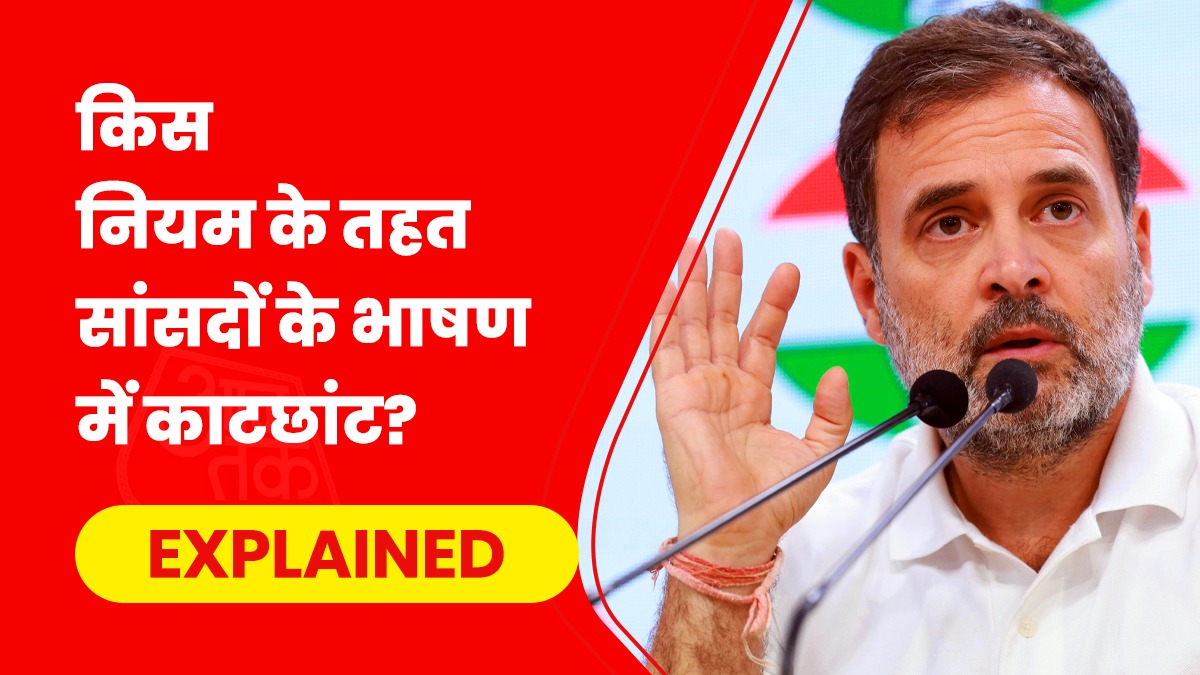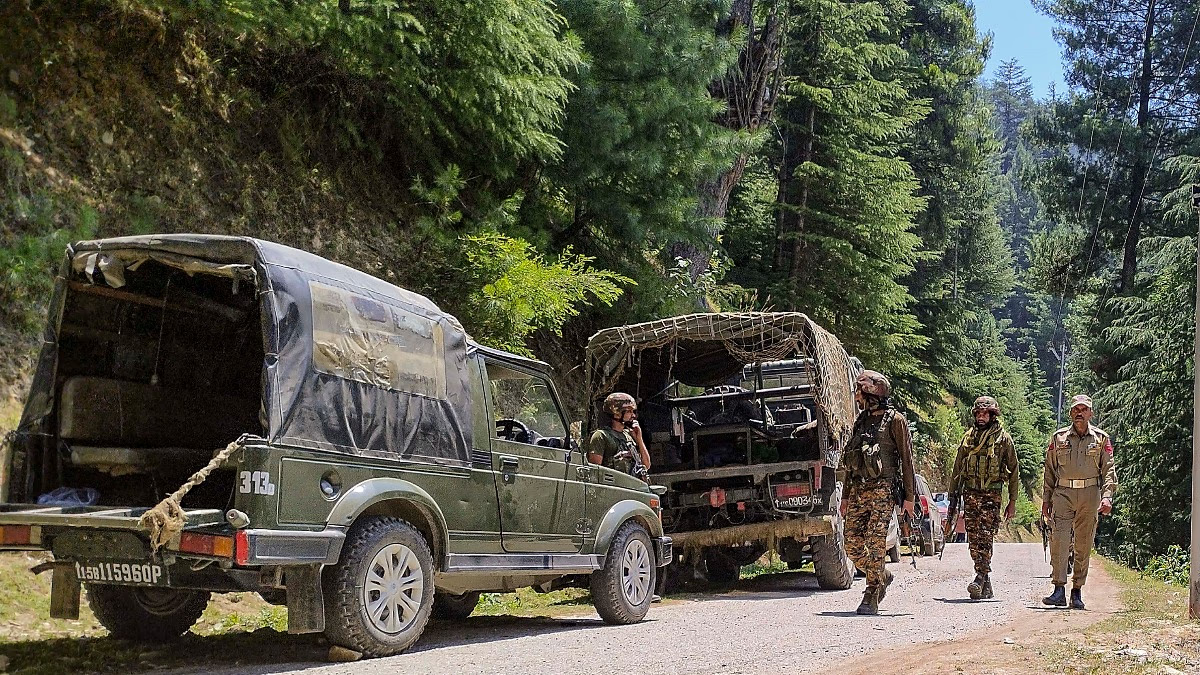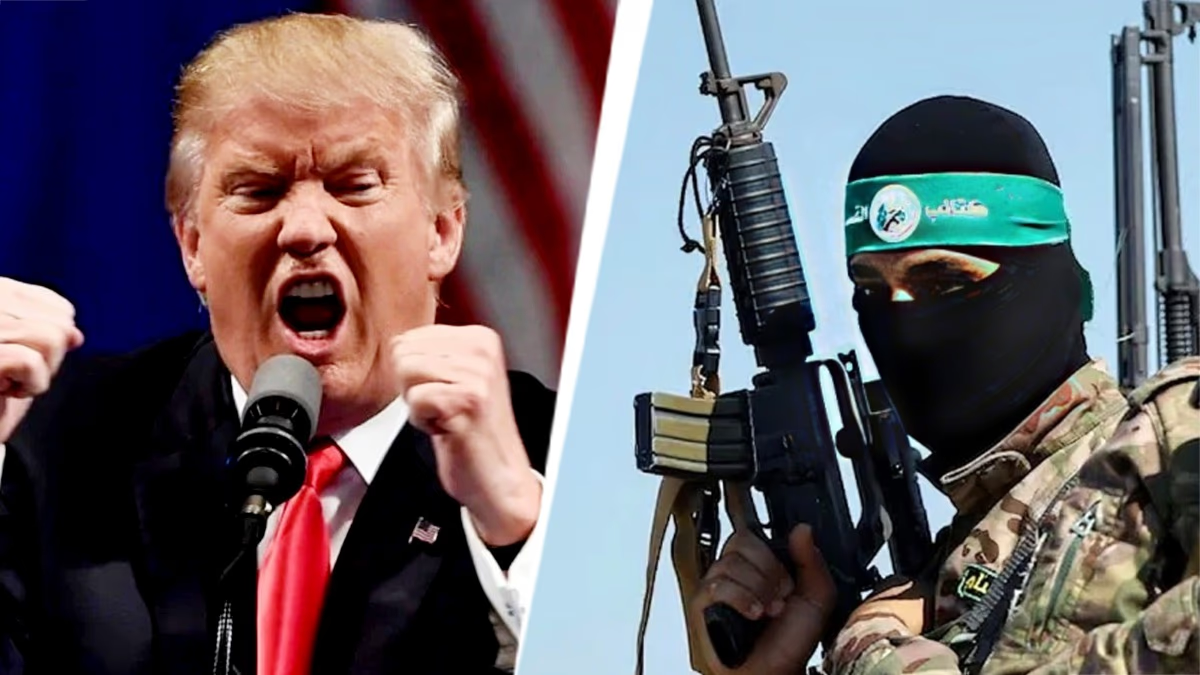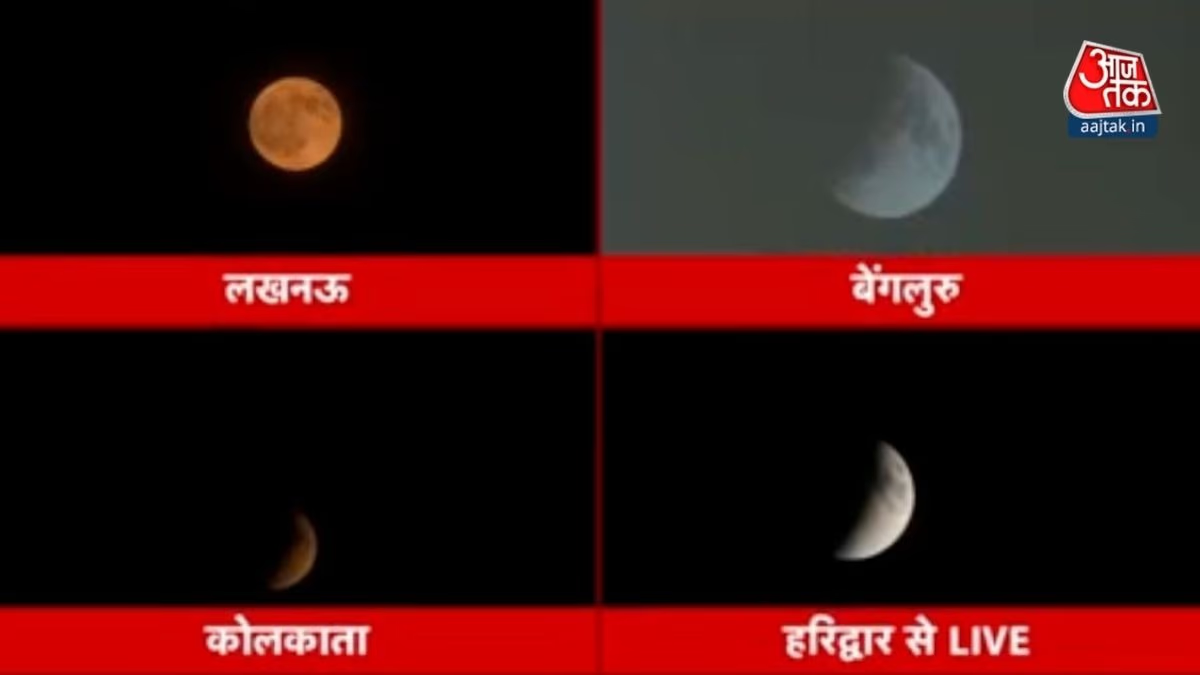Several parts of the leader of the opposition Rahul Gandhi's speech on July 1 were expunged from the parliamentary record, citing Rule 380 of house proceedings. The Congress, including Rahul, has expressed dissatisfaction with the decision, claiming that the removed segments contained no unparliamentary language. They are persistently demanding the restoration of the deleted parts. Explore whether such a reversal is possible.
What is the rule
Under Rule 380 (Expulsion) of the Lok Sabha's Procedure and Conduct of Business Rules, if the Speaker believes that words used during the debate are derogatory, indecent, or unparliamentary, they may, at their discretion, order such words to be removed from the proceedings.
It's not that members have complete freedom of speech – no word or term should break the sanctity of parliament. By referencing these grounds, sometimes entire lines or sections of speeches have been removed during sessions, known as expunction. Such actions have been taken under Rule 380 in the past.
Who has the right to expunge
The rule states that it is the Lok Sabha Speaker’s responsibility to delete parts or words of a member's statement. The ruling party may also raise objections and direct the Speaker's attention to such issues, prompting action. The reporting section remains alert to potentially unparliamentary words or sentences. Should an offending word be spoken, the reporting section notifies the presiding officer or the Speaker, requesting removal along with the full context.
Is transparency maintained for every MP?
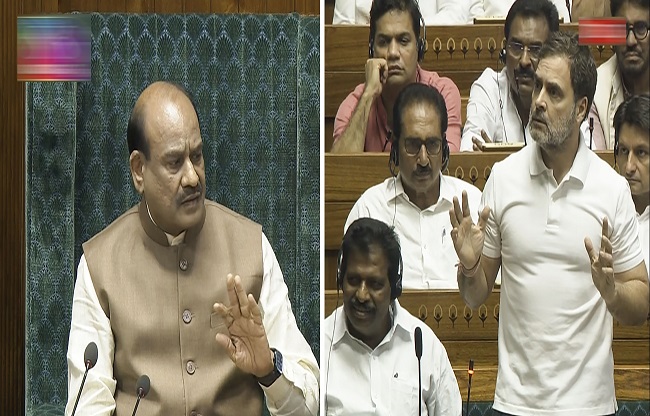
Source: aajtak
According to Rule 381 of the Rules of Procedure & Conduct of Business in Lok Sabha, the part of the proceedings that is expunged should be marked with an asterisk and accompanied by a footnote explaining the reason for the action.
Are speeches monitored?
The Lok Sabha secretariat has a dedicated team that records every speech and the entire proceedings. Anything controversial gets reported to the Speaker. The Speaker then notates it, and the video is beeped out. Written records are similarly amended.
Can punitive action be taken against those who make controversial remarks?
While there is freedom to speak or dissent in the house, language must be considered. Under Article 105(2) of the Constitution, statements made in the house cannot be questioned in court. A Member of Parliament can be reprimanded by their party or the opposition. A show-cause notice may be issued. The party can take action against the concerned leader if an adequate explanation is not provided.
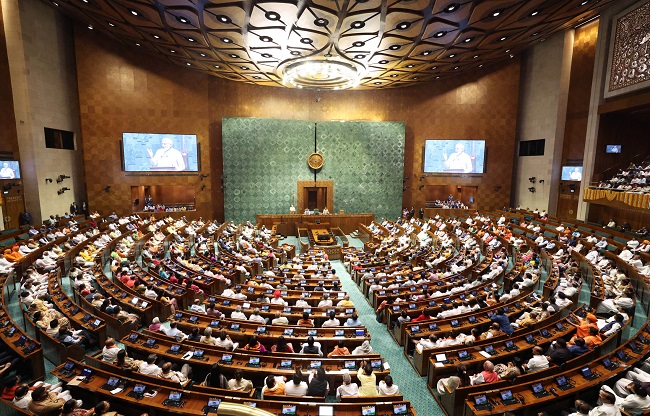
Source: aajtak
What happens to the words after they are expunged?
The controversial parts vanish from the parliamentary records. Media cannot report on them, regardless of being aired live and heard. The emergence of social media has, however, loosened this rule. People continually mention or report on the expunged sentences.
Can the decision be challenged?
Since the Speaker makes this decision, it cannot be contested by the MPs. However, they can request the restoration of expunged sections. They can advocate why their statement wasn't unparliamentary. Nevertheless, it cannot be challenged in court; everything must happen through democratic processes. Previously, there have been instances where deleted words have been restored.
What are unparliamentary words?
There are many words and expressions that are forbidden in parliament. MPs have freedom of speech but only to the extent that no one's dignity or sentiments are hurt. This includes words in Hindi, English, or any language. Even idioms or phrases that could be offensive or considered derogatory in a particular culture are prohibited.
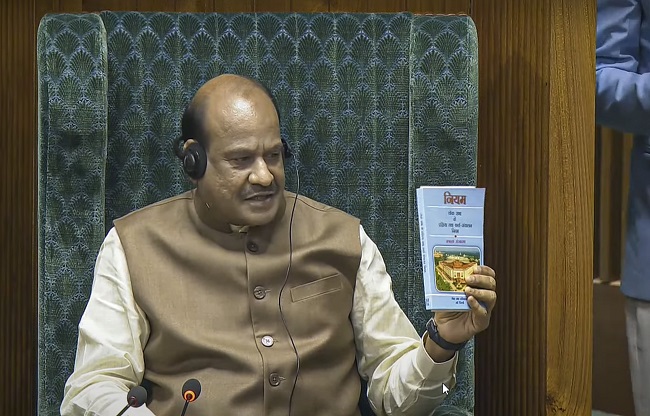
Source: aajtak
The first list of unparliamentary words was released in 1999
The Lok Sabha Secretariat published a booklet titled 'Unparliamentary Expressions.' It was first printed in 1999, with references to past debates. This serves as a rulebook that every MP should be aware of. The list of unparliamentary words is divided into two parts: the first for English and the second for Hindi. Words and expressions from other languages are referred to in English.
Some such Hindi words include
Jumlaaji, Bal Buddhi, Covid Spreader, Shameful, Deception, Sycophancy, Snooping, Dictator, Shakuni, Illiterate, Baseless, Arrogance, etc. Phrases like Natakbaazi, Liar, Deception, and Racist are also categorized here.
And some English expressions are
"You have double standards," "You have to be fair," "Don't try to gag my mouth," "Beaten with shoes," "Bloodshed," "Bloody," "Bloody oath," "Corrupt," "Cruel," "Deceived," "Dog," "Drama," "Mislead." These words are arranged alphabetically from A to Z, and next to each word is a note of where and when it was spoken. Expressions used in foreign parliaments are also part of the list.
